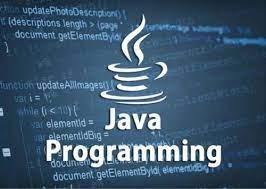In the ever-evolving landscape of Java Development, machine learning has emerged as a transformative force. Whether you are pursuing a career in software development, aiming for Java developer jobs, or enrolling in a Java Training Course, understanding how to implement machine learning in Java can open doors to exciting opportunities. This article delves into the significance of machine learning, its relevance in Java Development, and how it can shape your career.
The Rise of Machine Learning
Machine learning, a subset of artificial intelligence (AI), focuses on the development of algorithms that allow computers to learn and make predictions or decisions without explicit programming. Its applications span various domains, including image recognition, natural language processing, recommendation systems, and predictive analytics.
Machine Learning in Java Development
Java, renowned for its platform independence, scalability, and robustness, has embraced machine learning through libraries, frameworks, and tools. Implementing machine learning in Java Development offers several advantages:
1. Integration with Existing Systems:
Java's versatility allows developers to seamlessly integrate machine learning capabilities into existing Java applications, making it easier to enhance functionality.
2. Access to Java Ecosystem:
Java provides access to a vast ecosystem of libraries and tools, simplifying data preprocessing, model training, and evaluation.
3. Cross-Platform Compatibility:
Machine learning models developed in Java can be deployed across various platforms, ensuring consistent performance.
4. Scalability and Performance:
Java's scalability and performance capabilities are well-suited for handling large datasets and complex machine learning models.
Implementing Machine Learning in Java
To implement machine learning in Java, follow these key steps:
1. Choose a Machine Learning Library:
Java offers several machine learning libraries and frameworks, such as Weka, Deeplearning4j, and Apache OpenNLP. Select one that suits your project requirements.
2. Data Collection and Preprocessing:
Gather and preprocess your data. Java's extensive libraries for data manipulation and cleaning are invaluable at this stage.
3. Model Selection:
Choose an appropriate machine learning algorithm or model for your task. Java libraries provide a wide range of options, from decision trees to deep learning.
4. Training the Model:
Train your selected model using your preprocessed data. Java libraries simplify this process, allowing you to focus on model tuning.
5. Evaluation and Validation:
Evaluate your model's performance using metrics such as accuracy, precision, recall, and F1-score. Cross-validation techniques are often used to ensure robustness.
6. Integration with Java Application:
Integrate your trained model into your Java application. This typically involves loading the model and making predictions based on user input or data.
7. Continuous Improvement:
Machine learning is an iterative process. Continuously refine and improve your models based on new data and feedback.
Advancing Your Career with Machine Learning in Java
To advance your career in software development and machine learning with Java, consider these steps:
1. Learning Resources:
- Enroll in a Java Training Course that includes machine learning modules or explore specialized machine learning courses.
2. Practical Experience:
- Work on real-world machine learning projects in Java to gain hands-on experience and build a portfolio.
3. Specialization:
- Consider specializing in a specific machine learning domain, such as computer vision, natural language processing, or reinforcement learning.
4. Stay Informed:
- Keep up-to-date with the latest developments in machine learning and Java libraries. The field is continually evolving.
5. Collaboration and Networking:
- Collaborate with professionals in machine learning and Java development. Attend conferences, meetups, and webinars to expand your network and stay updated on industry trends.
Conclusion:
Implementing machine learning in Java Development is not just a technical feat; it's a strategic move to stay relevant and competitive in the rapidly evolving field of software development. Whether you are enrolled in a Java Training Course, actively seeking Java developer jobs, or striving to advance your career, mastering the integration of machine learning in Java can set you apart as a versatile and forward-thinking developer. Machine learning empowers you to create intelligent, data-driven solutions, positioning you as a valuable asset in a technology landscape driven by data and automation. By embracing machine learning in Java, you embark on a journey of innovation and endless possibilities, shaping the future of software development.

